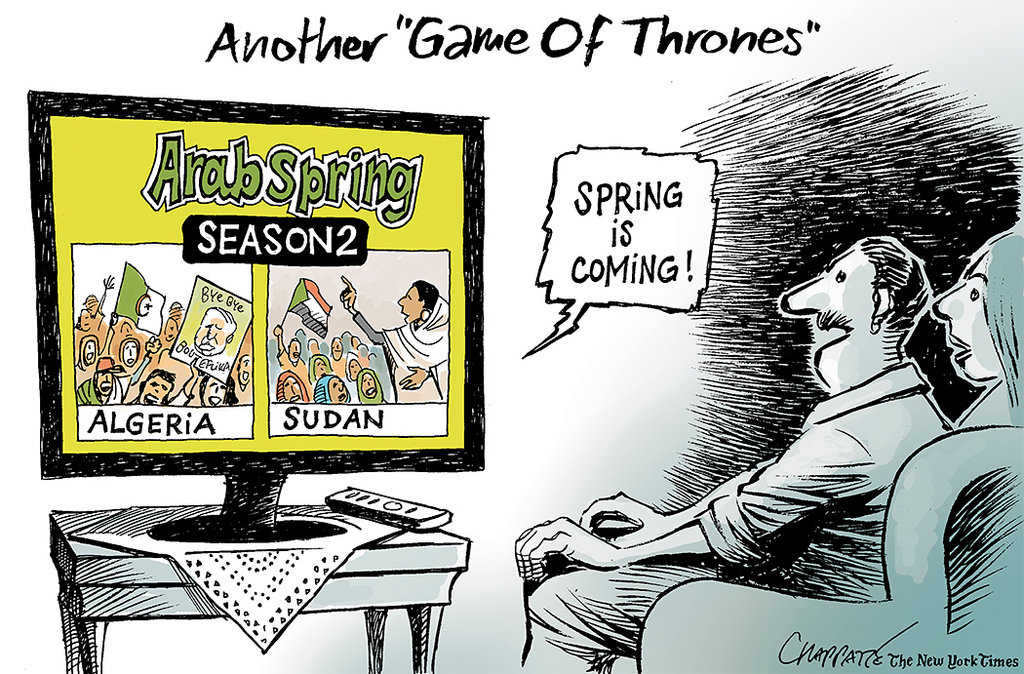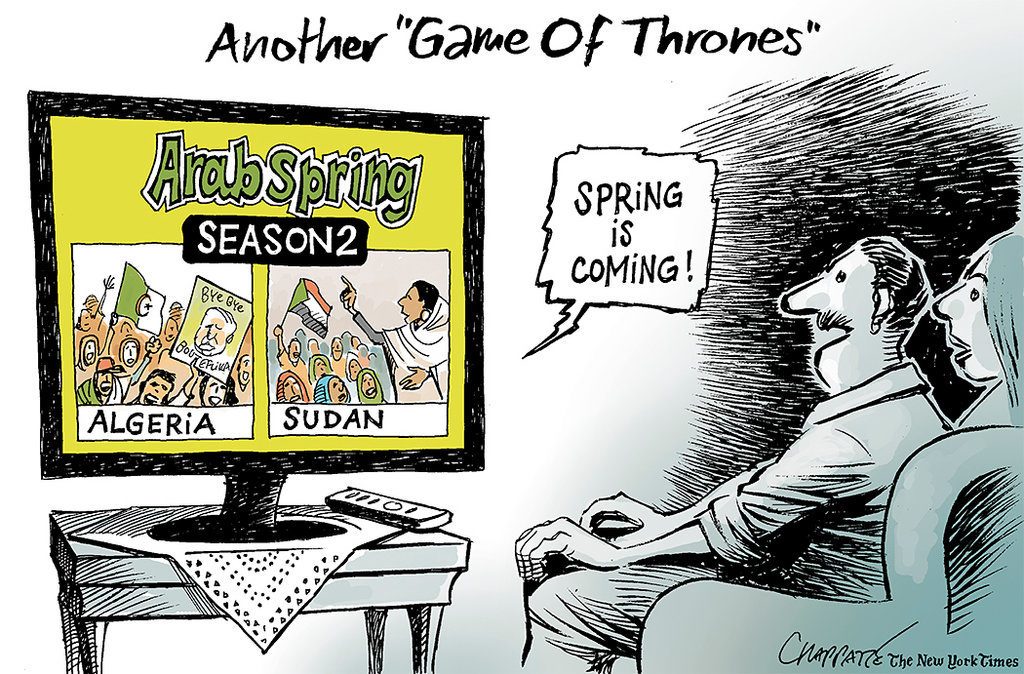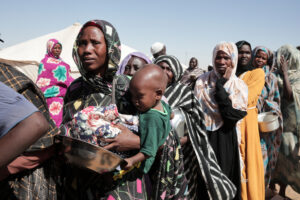The “Arab Spring” has Sprung Again in the Middle East


As you may have noticed on your morning commute, listening to your preferred daily news podcast, that stories of the Middle East have yet again been occupying the news cycle. No, these are not the stories of Syria or the refugee crisis that you have become so accustomed to hearing, but they may still sound familiar.
It is the image of a sit in protests in a city center, demanding the removal of a long-time leader. It is news that protestors are being killed by the dozens, by the very military that vowed to protect them. It is the elation of ousting a leader, only to realize what follows may be much, much worse.
Except now protests are in Khartoum, not Cairo. And it is the removal of Bouteflika, not Ben Ali. And while the names may have changed, the rhetoric is all too familiar.
Algeria. For the past several weeks millions of Algerian protestors have gathered in countries capital Algiers, demanding the end of President Abdelaziz Bouteflika’s 20-year rule. On April 2, 2019, he gave into the demands. The success of the nonviolent protests closely resembles that of Tunisia in 2011, but the uncertainty about what comes next looms large. The interim government, in charge until elections are held on July 4, 2019, has been appointed by Bouteflika and is comprised of some of his closest allies.
Sudan. Currently being held in Kober prison, the very place he sent those who challenged his three decades of rule, the ousted Sudanese President Omar Hassan al-Bashir awaits his fate. Al-Bashir is currently indicted by the International Criminal Court for genocide, war crimes and crimes against humanity for the atrocities in Darfur. Protestors are now hoping that power will shift from a newly formed Transitional Military Council back into the hands of the civilians.
Libya.After the ousting of Libyan dictator Muammar Gaddafi in 2011, the country faced a failed transition into democracy and a divide into warring militias. The western half of the country is being led by a UN-backed government, while the eastern half is ruled by General Haftar. In the recent days, Haftar and his alliance of militias have launched an offensive to take back Tripoli. The clashes have resulted in 205 deathsand more than 25,000 people displaced.
Egypt. In the coming days, a referendum in Egypt will begin over proposed constitutional changes that will allow President Abdel Fattah el-Sisi to remain in power until 2030. This referendum will be a haunting reminder to the Egyptians who spent weeks protesting the ousting of Hosni Mubarak’s 30 years of power in 2011.
Are the events transpiring in the region proof that history will repeat itself? Or will the region be able to rewrite its history, proving that the Middle East can meet the demands of its people and transition into a democracy? The next coming weeks will be telling, as we witness power transitions, elections, and the peak of a civil war.
Brittany is a Master of Arts in International Relations candidate at New York University’s Graduate School of Arts and Science with a focus on the Middle East. She holds a Bachelors of Science in Psychology from the University of Central Florida, with a certificate in Victim Advocacy and concentration in Middle Eastern studies. She currently interns with the International Rescue Committee, working in the communications department with the International Network for Education in Emergencies.




